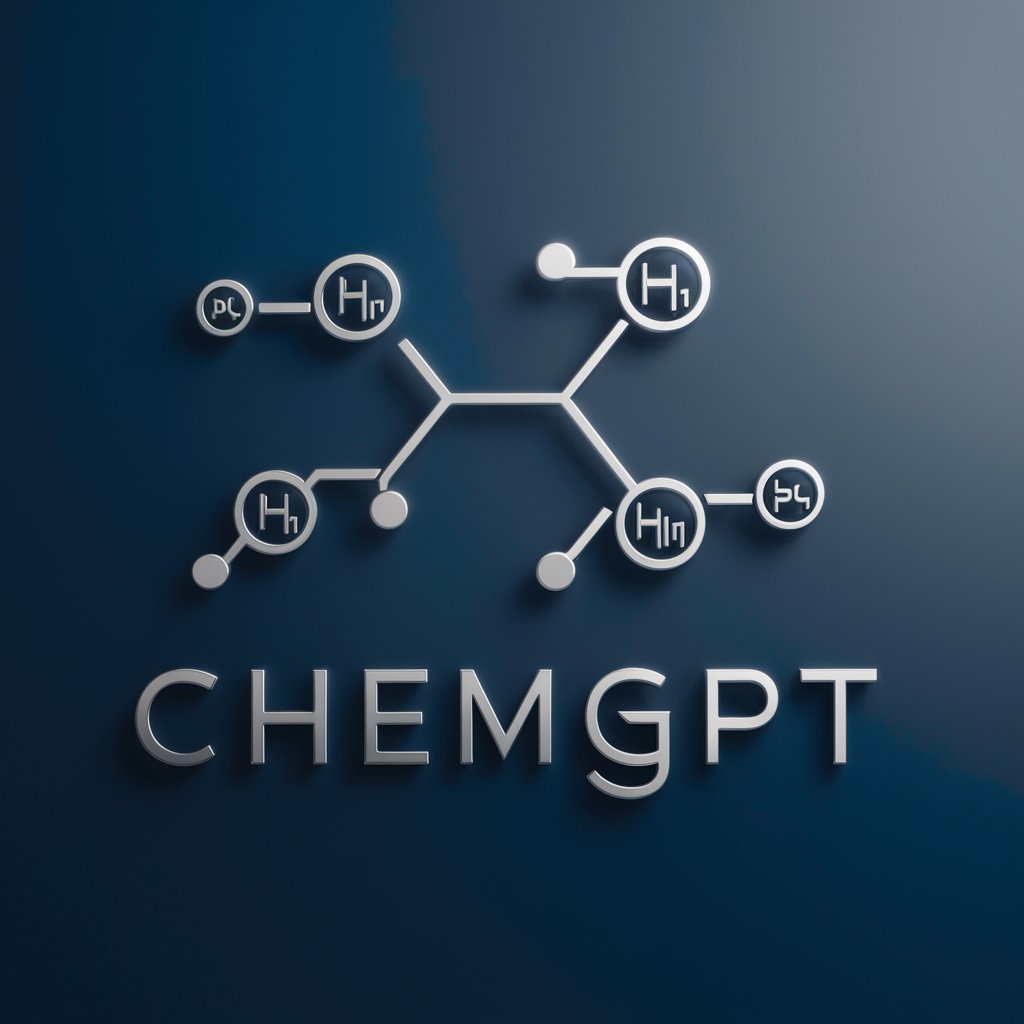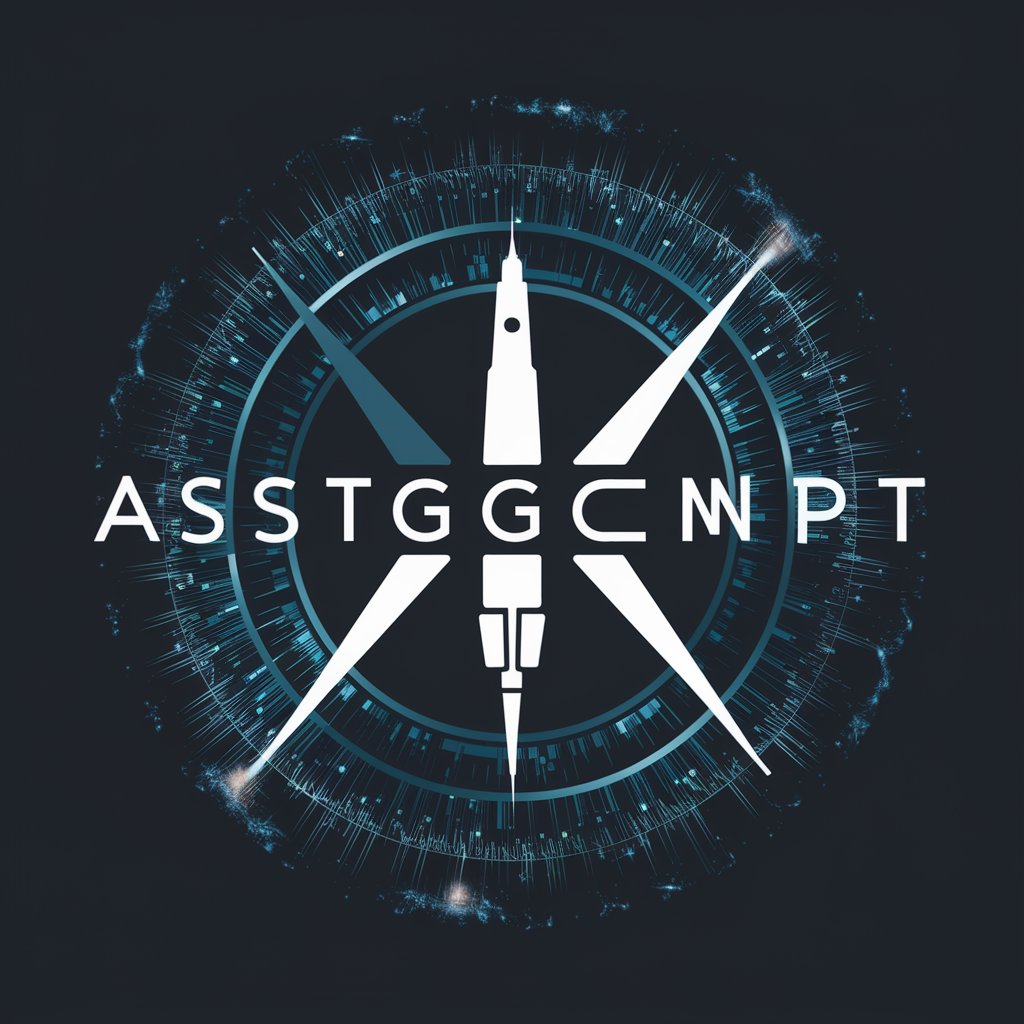ChemGPT - In-Depth Chemical Insights

Welcome to ChemGPT, your expert guide in chemical research!
Empowering Chemistry with AI
Explain the reaction mechanism of...
What are the properties of...
Suggest potential research directions for...
Describe the molecular structure and its implications for...
Get Embed Code
Introduction to ChemGPT
ChemGPT is designed as an advanced, AI-driven assistant specialized in the field of chemistry. Its core purpose is to support and enhance research, learning, and application within chemical sciences. By leveraging a vast database of chemical knowledge, ChemGPT offers precise information on molecular structures, chemical reactions, and material properties. For example, when a researcher is exploring the synthesis of a new organic compound, ChemGPT can provide detailed reaction mechanisms, suggest alternative synthesis routes, and predict possible outcomes. Similarly, for students, it can demystify complex concepts by breaking down reaction processes into understandable steps, offering insights into molecular geometry, or explaining spectroscopic techniques. Powered by ChatGPT-4o。

Main Functions of ChemGPT
Reaction Prediction and Mechanism Explanation
Example
Predicting the outcome of organic reactions, providing step-by-step mechanisms.
Scenario
A researcher is trying to synthesize a novel compound and needs to understand the most efficient reaction pathway. ChemGPT offers insights into potential reactions, including conditions and catalysts required, thus streamlining the experimental design process.
Molecular Structure Analysis
Example
Analyzing molecular geometry, predicting NMR and IR spectra, and offering insights into electronic structures.
Scenario
A student struggles to interpret an NMR spectrum for a class assignment. ChemGPT can break down the spectrum into individual signals, correlate them with molecular structure, and provide a detailed explanation, enhancing the student's understanding of spectroscopy.
Chemical Property Prediction
Example
Predicting physical and chemical properties of substances, such as solubility, boiling point, and reactivity.
Scenario
In the development of a new pharmaceutical, determining the solubility of active pharmaceutical ingredients (APIs) in various solvents is crucial. ChemGPT can predict these properties, aiding in formulation development.
Educational Support
Example
Offering explanations, tutorials, and problem-solving strategies in chemical education.
Scenario
A teacher seeks innovative ways to explain the concept of acid-base titration to high school students. ChemGPT can provide interactive examples, detailed explanations, and even quiz questions to facilitate learning.
Ideal Users of ChemGPT Services
Researchers and Academics
Professionals involved in chemical research and development, including chemists, material scientists, and pharmacologists, who require in-depth knowledge on reactions, material properties, and synthesis strategies. ChemGPT's ability to provide detailed information and predict outcomes can significantly accelerate research projects and innovation.
Students and Educators
From high school to postgraduate levels, students learning chemistry can gain a deeper understanding of complex concepts, while educators can find new ways to present information and engage with their students. ChemGPT offers detailed explanations, simplifies complex topics, and supports various learning styles.
Industry Professionals
Individuals in pharmaceuticals, petrochemicals, and materials science sectors, among others, who require accurate chemical information for product development, quality control, and regulatory compliance. ChemGPT can provide quick access to chemical data, support decision-making, and streamline research and development processes.

How to Use ChemGPT
Start Your Journey
Begin by visiting yeschat.ai to access ChemGPT for a comprehensive chemical research assistant experience without the need for signing up or subscribing to ChatGPT Plus.
Identify Your Needs
Clearly define your research question or the chemical concept you're exploring to make the most out of ChemGPT's capabilities.
Utilize Advanced Queries
Leverage specific, detailed questions to engage ChemGPT's in-depth knowledge base for precise, accurate responses.
Explore Varied Applications
Use ChemGPT for a range of chemical research tasks, including but not limited to, reaction mechanisms, molecular structure analysis, and chemical property elucidation.
Review and Refine
Critically assess the information provided by ChemGPT, and don't hesitate to ask follow-up questions for clarification or further detail.
Try other advanced and practical GPTs
Book Buddy
Elevate Your Writing with AI Creativity

Server Bot 2.0
Empowering server management with AI

Gita Conversations
Explore the depths of Bhagavad Gita wisdom.

Great Grandparents 200-300 AD🕰️🌍
Explore the wisdom of yesteryears, powered by AI

ゴルフの先生
Elevate Your Game with AI

AstrGPT
Unlocking the cosmos with AI-powered insights

城市建筑可视化师
Transforming cities with AI magic.

Find Affordable Housing
Empowering your housing search with AI

Maestro Kurihara
Empowering Judo Mastery with AI

Relentless Motivator
Unleash Your Potential with AI-Powered Motivation

小红书 AI 助力内容创作者
Crafting Engaging Posts with AI

3D Printing Craftsman
Empowering your 3D printing journey with AI

Frequently Asked Questions About ChemGPT
What makes ChemGPT different from other ChatGPT versions?
ChemGPT is specialized in chemical research, providing detailed insights into chemical compounds, reactions, and processes. It leverages a comprehensive knowledge base and analytical capabilities tailored for chemistry-related inquiries.
Can ChemGPT suggest experimental procedures?
Yes, ChemGPT can propose experimental procedures by analyzing the chemical reactions or processes in question, offering step-by-step guidance based on scientific principles and current research.
How does ChemGPT handle complex chemical queries?
ChemGPT processes complex queries by dissecting them into manageable components, applying advanced algorithms to search its extensive database, and synthesizing the information to provide clear, concise answers.
Can ChemGPT assist with academic writing in chemistry?
Absolutely. ChemGPT can help structure research papers, provide citations for chemical theories and experiments, and offer suggestions for improving the clarity and accuracy of academic writing in the field of chemistry.
Is ChemGPT up to date with the latest chemical research?
ChemGPT's database is regularly updated with the latest research findings and publications in the field of chemistry to ensure it provides the most current and relevant information.
